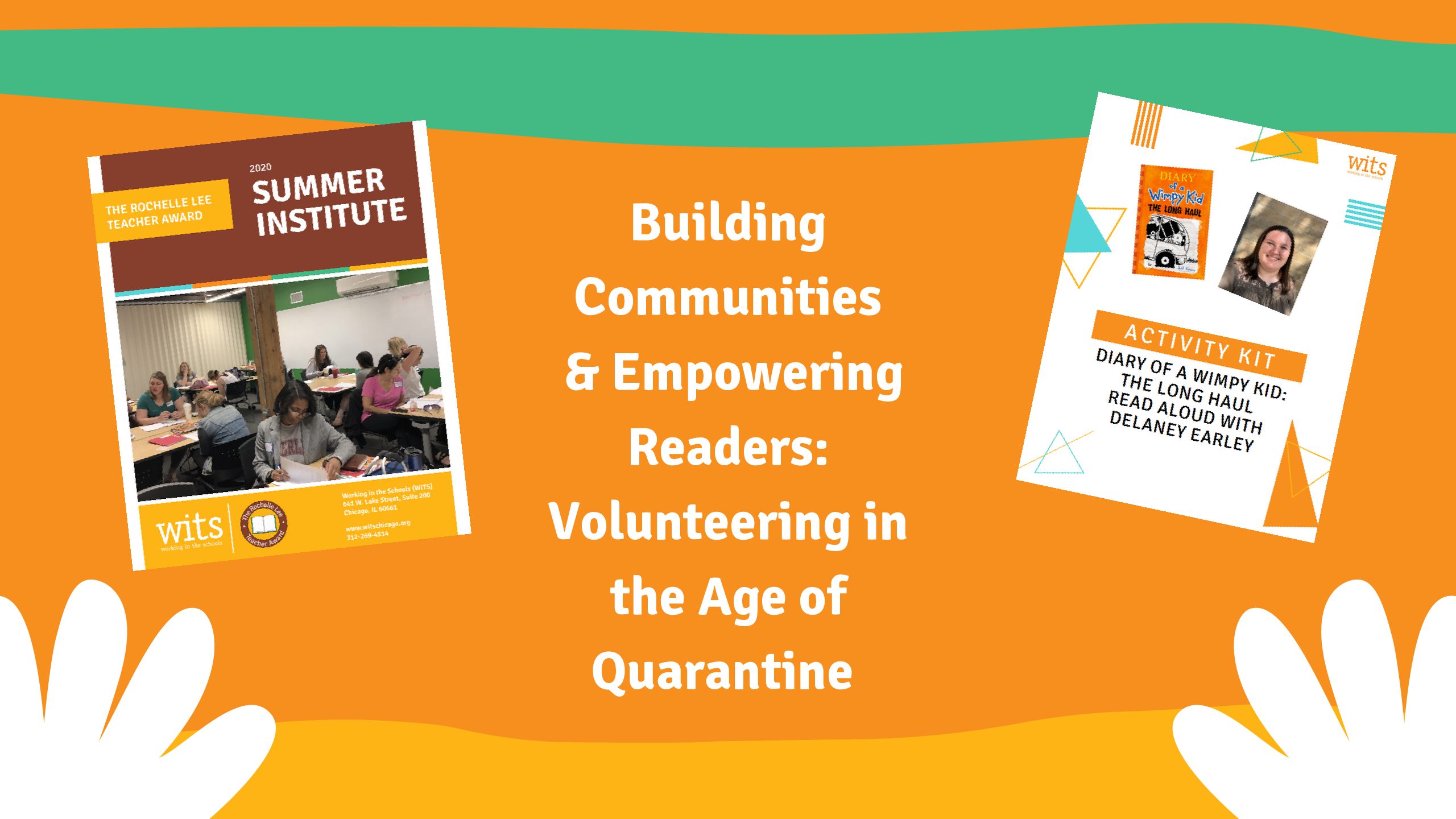Our work has shifted. As WITS faced challenges in real time amid the uncertainty of a global pandemic, we approached a renewed commitment to our vision of Building Communities, Empowering Readers. We made the decision to halt programs for the remainder of the school year, developed a comprehensive online read aloud program with activity kits, and launched the 2020 Rochelle Lee Teacher Award Summer Institute using Zoom technology and virtual registration in a matter of a few months – and these were just a few of the critical moves to regain momentum and uphold our values of consistency, community, and empowerment. As we look toward the school year which looms with more questions than answers for many, WITS considers the question: How will we responsibly engage our volunteers and students in pursuit of our mission when in-person programming is unlikely to resume for some time?
Consistency, Community, Empowerment
We recognize that adults too have experienced a major shift in their understanding of the value of consistency, as the quarantine has forced everyone into isolation and disrupted routines. However, students do not have the freedom of mobility that adults have, and their lives are centered around school and their friends and families, all of which have shifted dramatically. The need for human connection is universal, and we’ve all lost a bit of that during this time. Young people will continue to look to adults for a sense of safety and support.
Working within systems that have been uprooted has caused us to channel our creativity as we continue to maintain partnerships with our schools and volunteer partners. As WITS Community Manager Annie Kennedy puts it, “What does it mean to be of service?” A big part of this is letting go of power and feel comfortable in doing so. As the WITS staff considers this process, we encourage our volunteers to do the same. We hope to ensure even more consistency from our volunteers as we prepare for the coming school year, while understanding that the various potential systems for school starting may mean less consistency for our students. While there may be challenges with attendance or technology, we acknowledge the inherent privilege of our staff and volunteers in how COVID-19 has affected us as adults.
There are countless possibilities for new definitions of “community” as we keep students and volunteers connected, and we encourage and empower our volunteers to think about their service in a new light as we all strive to be our best selves and keep learning through this process together. It is humbling to acknowledge that you do not have the answers, but it positions our community to learn and co-create imaginative new programmatic spaces together.
Chicago Cares: A Prime Example

Organizations all over the country have adapted their programming and resource accessibility in the wake of COVID-19. In the City of Chicago, a fellow nonprofit, Chicago Cares, is another major activator of community and corporate volunteers. Their work has shifted immensely during this time.
Sofia Porta, Volunteer Engagement Coordinator at Chicago Cares, speaks about the nuances of their mission to “mobilize volunteers to build a stronger, more unified Chicago.” Sofia speaks about Chicago Cares’ belief that “volunteering is a relationship, where everybody who attends an event has something to learn and something to share. We want our volunteers to make connections on a human level…Consistency plays a huge role in transforming this work from charity to advocacy; when volunteers return to the same location frequently, they demonstrate that they care about the relationships they’ve fostered and are invested in them.” The distinction between charity and advocacy is an important one – it pushes the commitment from giving your time or money to investing in the shared futures of communities together and fosters deeper understanding.

Chicago Cares has also had to make important changes during these past few months. “With in-person programming on hold, we pivoted to develop a variety of virtual opportunities. We have noticed a need for educational opportunities, a desire for spaces where folks can connect with one another and share their stories, and the importance of spreading awareness for events and initiatives throughout our city.” Chicago Cares has been able to fill in to meet each of these needs. As more opportunities have been built in the online universe, accessibility has been increased to accommodate varying schedules, abilities, and life balance.
In terms of volunteer engagement, Chicago Cares has an intentional strategy to inform volunteers about their responsibility in service, “The narrative that Chicago has written about disinvested neighborhoods is rooted in racism, which criminalizes Black people and equates them with violence and poverty. As we invite volunteers into new spaces, we have a responsibility to address the space we take in any community.” The work does not only take place in outward-facing initiatives and events, but it has been a deep internal process as well. “We consider the root causes of social issues: What systems do we have in place? Who does this benefit, and who might this harm? This question is at the heart of all the work we do.”
Looking Ahead
As our world has shifted, so has our work and our approach toward engaging volunteers. It seems that our values of consistency, community, and empowerment are more poignant than ever, and each of our initiatives position us further in alignment with these goals. While the future remains uncertain, the potential for responsible volunteer engagement and service is limitless, and we continue to work toward building communities and empowering readers.




